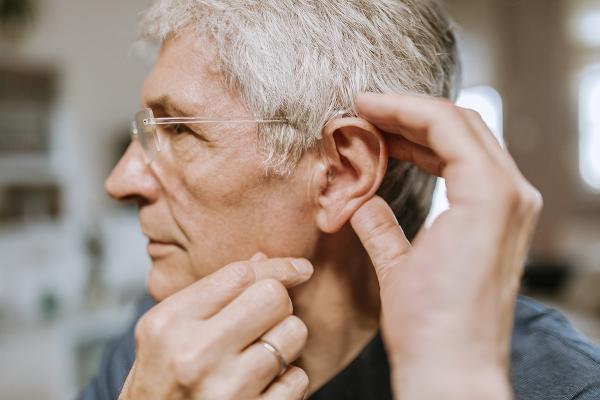
Could you be one of them?
There are some surprising perks to treating hearing loss, beyond the obvious ones.

There are many reasons why you might want to get a hearing test. You could be looking for a baseline test to compare with future hearing exams. Or maybe a family member sent you because they’ve noticed your hearing isn’t as sharp as it used to be.
And you might be surprised when the hearing care professional goes over the results. Maybe you find out there are sounds you aren’t hearing that you’re not even aware of, for example.
“Sometimes just seeing it on paper and actually having someone explain it to you, a light bulb goes off and then people realize that they may be missing more than they really thought,” says Alison Kaye, Au.D. She’s an audiologist and director of Hearing Wellness Centers in Highland Park, Illinois.
But there are other, less obvious benefits of getting your hearing tested and treated. Hearing well might make you feel less isolated, safer in your home and more. Read on to learn the details.
Let’s say your hearing care professional recommends hearing aids after the test. Once you get fitted with your new devices, you may be surprised at the types of sounds you can hear. “People come back and say, ‘I had no idea that the turn signal in my car clicked,’” says Kaye.
In fact, hearing care professionals recommend you wear your hearing aids every day, not just when you go out and socialize. The reason? Your brain has to get used to these everyday noises you once missed, like the sound of appliances or your computer keyboard.1 If you wear hearing aids just for outings, your brain may get overwhelmed by all the sounds.

Could you be one of them?
Struggling to hear can be exhausting, says Kaye. This is what’s known as listening fatigue. Your brain is working overtime to hear certain sounds or conversations. This creates a lot of stress on the brain, which eventually leaves you tired.2
Once they’re wearing hearing aids regularly, “a lot of people feel they aren't as tired at the end of the day,” Kaye says. You may also find that your memory gets better. That’s because your brain is no longer taking resources away from other thinking skills.2
Ready to request a hearing exam and consultation? EPIC Hearing Healthcare has a national network of hearing care professionals. Request an appointment.
You don’t have to take a hearing test to keep your driver’s license. But wearing hearing aids might help keep you and others safer behind the wheel. It makes sense: You’ll be able to hear things like cars honking if you’re pulling out of the driveway or drifting out of your lane.
“I’ve had patients who didn’t realize that there were sirens coming up behind or beside them until they’re almost right there,” says Kaye.
When you can’t hear, it’s hard to take part in conversations. You may start avoiding group activities and events because you think they’ll be too challenging. For instance, you might pass on a book club meeting. Or say no to a Sunday brunch with your family. This can make you more isolated and may even lead to depression.3
But taking part in conversations again could lift your mood, says Kaye. Another benefit? The people in your household may not be as frustrated or annoyed with you now that you can hear what they’re saying, she says. And that could make you feel better about yourself too.
Keeping your balance requires a lot of clues from both your eyes and ears. When a person has trouble hearing, it’s harder to pick up those signals.4 If your balance is off, you’re more likely to take a tumble. One study reported that adults with hearing loss have double the risk of falling than those who hear well.5
Wearing hearing aids may help. That same study found that people age 60 years and older who wore hearing aids cut their risk of falling in half.
And most falls happen at home, according to the National Institute on Aging.7 To further protect yourself, it’s a good idea to fall-proof your house. Some tips: Remove tripping hazards, improve lighting in stairwells and hallways, install handrails and add grab bars in the shower.
The bottom line? A hearing exam and consultation could be life-changing. And so could getting hearing aids. “It’s usually one of those things where people go, ‘Why did I wait so long?’ This has changed my daily life,’” says Kaye.
Sources
Information is for educational purposes only and is not a substitute for the advice of a licensed medical provider. Consult your provider prior to making changes to your lifestyle or health care routine.
Network size varies by market.